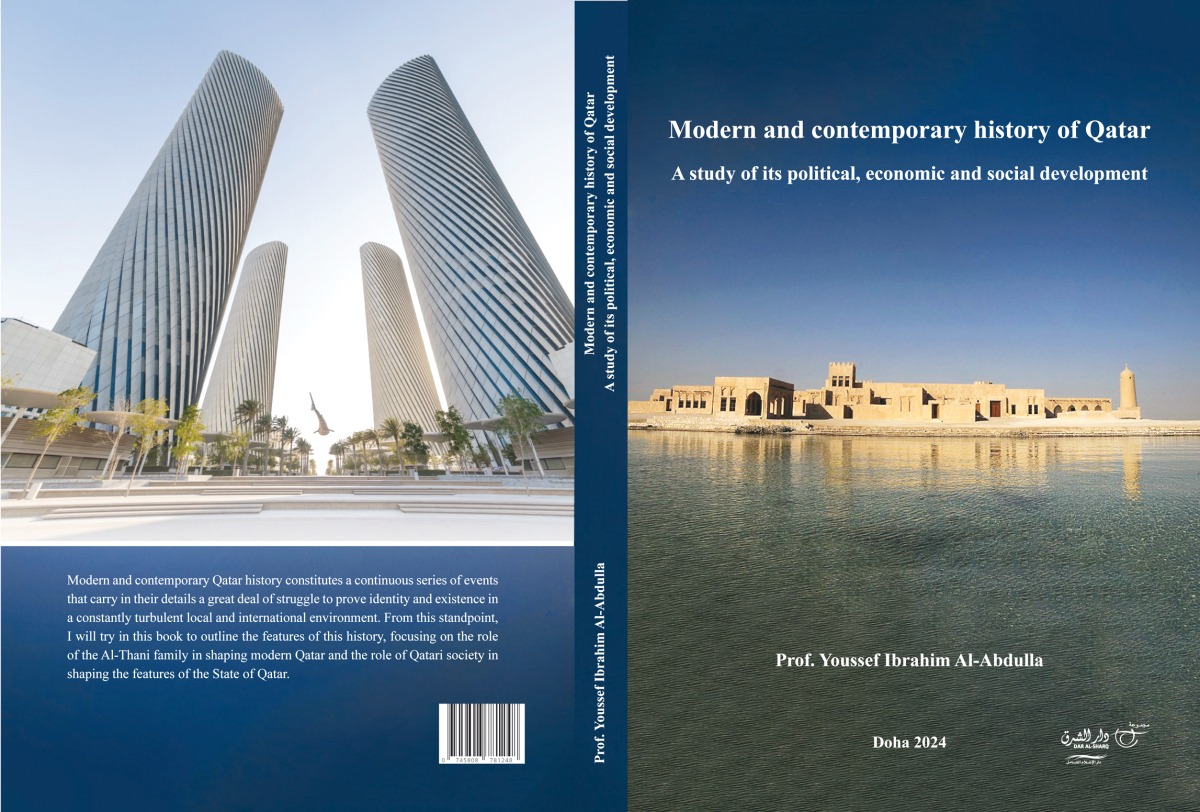Doha: Dr. Yousef Ibrahim Al Abdullah, a professor of modern history at Qatar University, has authored a book titled “Modern and Contemporary History of Qatar, A Study of its Political, Economic and Social Development.” The book delves into the modern and contemporary history of Qatar, focusing on the role of the Al Thani family in shaping the nation and the contributions of society to its development. Dr. Al Abdullah mentioned that the 232-page book is available in both Arabic and English, aiming to educate young Qatari students about their history from the sixteenth century up until the present reign of Amir H H Sheikh Tamim bin Hamad Al Thani.
The book is structured into six chapters and a conclusion, each focusing on a different era in Qatar’s history. Chapters discuss topics such as the emergence of the Al Thani family, the Qatari-British Treaty of 1868, and the leadership of Sheikh Jassim bin Mohammed Al Thani. Additionally, the book explores important events like the Battle of Al Wajbah in 1893 and the signing of the Qatari-British Treaty of 1916 during Sheikh Abdullah bin Jassim Al Thani’s era. Dr. Al Abdullah pays special attention to the social and economic conditions that shaped Qatar’s modern history, including the transition to modernity and the development of administrative systems.
The author draws upon various historical sources to enrich the content of the book, including British documents, India Office Records, and a collection of Qatari history documents translated by Ahmed Anani. Dr. Al Abdullah aims to shed light on Qatar’s history and heritage through his research projects, with a focus on the Gulf region in his upcoming book. By documenting the events that have shaped Qatar’s identity and existence over the centuries, the book serves as a valuable resource for those interested in understanding the nation’s journey towards sustainable development.
In his introductory remarks, Dr. Al Abdullah highlights the challenges faced by Qatar in establishing its identity within a turbulent local and international environment. The book provides insights into the evolution of Qatar’s political, economic, and social landscape, emphasizing the interconnectedness of these factors throughout its history. By exploring key milestones such as the declaration of independence in 1971 and Qatar’s advancements under various leaders, the book offers a comprehensive view of the nation’s development trajectory.
Through a comprehensive analysis of Qatar’s history, the book aims to empower readers with knowledge about their roots and heritage. By examining the significant role played by the Al Thani family and societal factors in shaping Qatar’s modern identity, Dr. Al Abdullah’s work underscores the importance of preserving historical narratives in fostering a sense of national pride and identity. The book stands as a testament to Qatar’s journey towards progress and innovation, showcasing the resilience and determination of its people in overcoming challenges and embracing growth.










